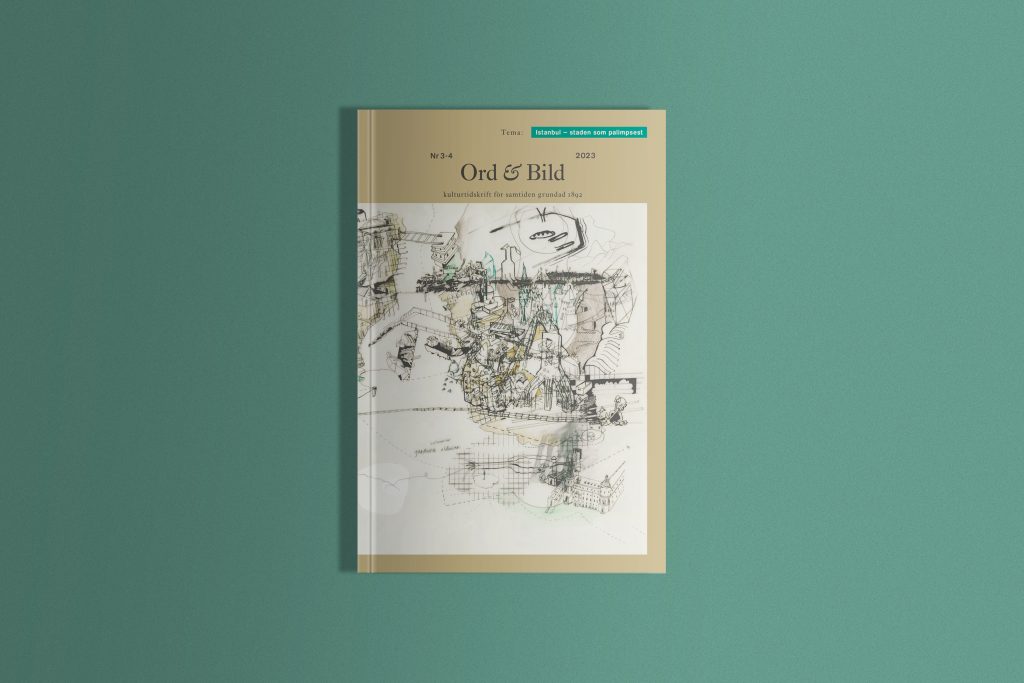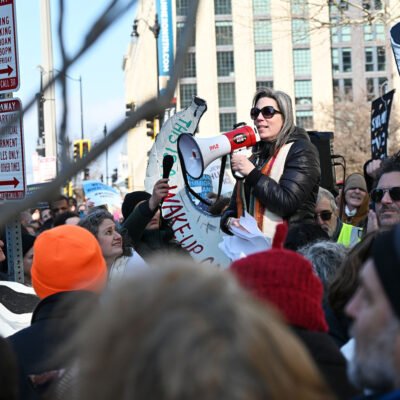In an issue of Ord&Bild exploring Istanbul’s urban heritage, Ülkü Holago revisits Gezi Park – one of the last green areas in the city. In the early 2000s, as part of Recep Tayyip Erdoğan’s urban renewal project, the park was to be remodelled as a shopping mall with a highway underneath, adjusting Istanbul ‘to the dynamics of the global system and the EU process’.
In June 2022, Erdoğan referred to the millions of people who took part in the Gezi protests as ‘rotten’ and ‘sluts’: ‘They drank beer and soiled themselves in the Dolmabahç Mosque, because that’s what they are.’
What started as attempts to preserve Gezi by architects, urban planners, lawyers and cultural workers evolved into Turkey’s biggest ever anti-regime protest. Holago writes about a sprawling movement, an Istanbul resistance gathering the two main opposition parties: the pro-Kurdish leftwing Peace and Democracy Party and the Republican People’s Party.
Opinions surrounding the Gezi protests vary. But they can be seen as a milestone on the country’s path to authoritarianism. Resentment towards Erdoğan is still alive in Istanbul and might be proven by the local elections in the spring of 2024. ‘And amidst all the turbulence and polarisation, it still stands. Gezi Park. Afterall.

A country in constant conflict
There’s an agency in Galatasaray where the phone never stops ringing. Helin Sahin has taken a seat in the waiting room. She has been invited to meet a lawyer who has dedicated her life to helping women unprotected by the state.
A young woman walks in who is referred to by the others waiting as ‘the girl with the initials’. She has been subject to group rape by military and police officers, men in power. The agency is her last hope: ‘The whole agency was waiting for the lawyer who would help them. She had to, there was no other way. She always found a solution.’
Helin Sahin leaves the office building, goes for a walk and continues telling stories of oppressors and the oppressed, who are sometimes one and the same. She writes of her political hopes and expectations as she recalls a city and country constantly in conflict.
In the Galatasaray Square, a group of women gather, all recognisable from the waiting room at the agency. They are called the ‘Saturday mothers’.
‘In search of their missing relatives … they demand that the state return their relatives, alive or dead. One brother was tortured to death in prison. A sibling holds her mother’s arm as she sits in protest with her son’s picture in her hand. Sometimes the Saturday Mothers get their relatives’ remains back. In a plastic bag, the state delivers what’s left of what was once a person with memories.’
Diaspora and back
‘Sweden and Turkey. Our stories have long been intertwined’. Simon Sorgenfrei is crossing the Galata Bridge, interviewing Kerim Arhan who has just moved to Istanbul.
Kerim’s family, the Arhans, was the first Turkish family in Sweden. Arriving in Malmö in 1928, Kerim’s father Mustafa and his brothers were treated correctly by the Swedish authorities. Maybe it was easier to be a Turk in Sweden in the ’30s or ’40s, Sorgenfrei asks. ‘The Orient had, and perhaps still has for some, a shimmer of spirituality and mysticism around it that a food trader from Istanbul could play on to attract customers.’
The Arhans were an important family for the Turks that followed them: ‘The brothers’ carpet shops functioned as Turkish mini-consulates, in addition to the real consulate in the capital, and sometimes as places of prayer for Muslim immigrants in Sweden. Kemal Atatürk oversaw the operations from framed photographs on the walls.’
Kerim was brought up in the ‘80s and had a different experience. He recalls the racist graffiti drawn on their house after his father had been photographed in the newspaper. In school, he was simply called ‘the Turk’. His Turkish heritage had always been there, even if it had been difficult to grasp. Kerim had a Turkish father and a Swedish mother. His identity holds a certain different-ness: he is different to Swedes as well as different to Turks.
Now, Kerim is walking along the streets of Istanbul, working to establish a culture house near the Swedish consulate. He writes to Sorgenfrei: ‘If there’s one thing I love from my ancestors, it’s sitting in a carpet house and hearing the rustling and smelling the carpets and just being there … So it was only natural to sell some carpets. I will sell carpets ten minutes from where my grandfather brought his first carpets to Sweden.’



